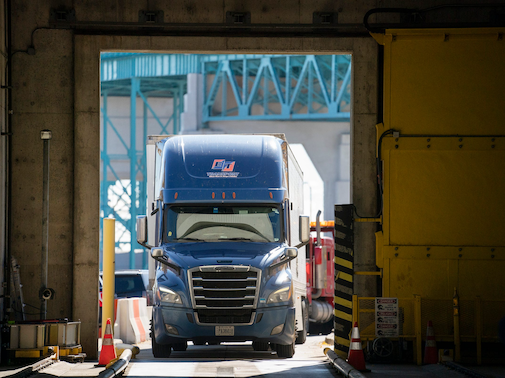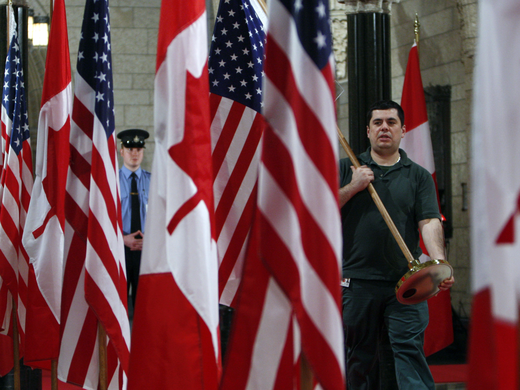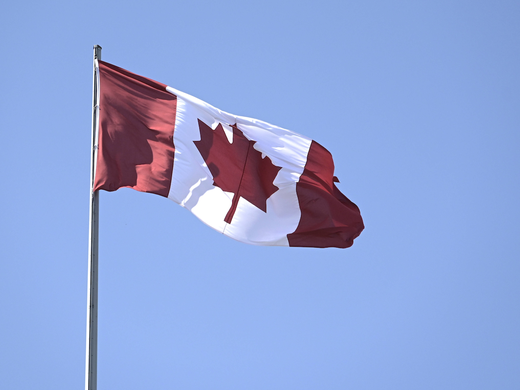US President Donald Trump views tariffs as his Swiss Army Knife. He can use the threat of tariffs to prod other countries to change a wide range of domestic and international policies. For example, in a January 23 speech to the World Economic Forum, he said, “Come make your product in America….But if you don’t make your product in America, which is your prerogative, then, very simply, you will have to pay a tariff.”
But Trump’s tariffs will also harm American citizens and companies as he reinforces his authority. Employees and communities in affected sectors will have to contend with lost income, economic instability, job insecurity and job losses. These groups will have little leverage to dismantle tariffs once they are imposed.
Yet not everyone in America will suffer from these tariffs. Those in the know can apply for exemptions. Researchers have found that the first Trump administration provided such exemptions to powerful “friends.” In so doing, Trump signals that only he will decide who prospers and who suffers in the new American economy.
It wasn’t supposed to be this way. As we learned in school, the American colonists viewed Britain’s taxes on tea (tariffs) as a form of taxation without representation. Thus, the founders designed a Constitution in which authority for trade policy making would be shared by the executive and legislative branches. Moreover, these two branches would check each other’s power.
Thus, article 1, section 8 of the US Constitution provides Congress with “Power To lay and collect Taxes, Duties, Imposts and Excises,…but all Duties, Imposts and Excises shall be uniform throughout the United States;…To regulate Commerce with foreign Nations.” Meanwhile, article 2, section 2 provides that the president “shall have Power, by and with the Advice and Consent of the Senate, to make Treaties, provided two thirds of the Senators present concur.”
But in the twentieth and twenty-first centuries, Congress voluntarily gave up some of its power to make trade policy. For example, section 232 of the Trade Expansion Act of 1962 grants the president power to place tariffs on imports if they are found to be a threat to US national security.
The International Emergency Economic Powers Act of 1977 also gives the president broad authority to deal with international economic emergencies, as defined by the president. Not surprisingly, Democratic and Republican executives have used that power. In his first term, President Trump levied tariffs on some US$300 billion of Chinese exports. President Joe Biden used the same power to apply tariffs on electric vehicles, batteries, chips, steel and face masks.
By using tariffs in this way, both men abused their power. Tariffs are disruptive: there is considerable evidence that they reduce growth and undermine human welfare, whereas there is little evidence that they help firms return to a competitive position. Moreover, tariffs are unaccountable and undemocratic. The firms that benefit from their imposition are not required to show that they used this breathing room to become more competitive or to make their employees more productive.
Moreover, as noted above, several studies have found that firms receiving protection or exemptions from protection receive favouritism. As in the nineteenth century, trade policy became not about protecting firms from unfair imports, but about “pay to play.” In addition, as the history of steel protectionism reveals, once tariffs are in place, they are difficult to dislodge, especially if the president can use national security rationales to justify these tariffs, as he did during the steel and aluminum trade dispute with Canada in 2018.
Congress could respond creatively to this misuse of power. First, any member of Congress could task the congressional investigative agency (the Government Accountability Office, or GAO) to examine how firms that received protection in the last two years used the breathing room afforded by tariffs. Such firms should be required to answer several questions, for example, did they reinvest in their plant and equipment, worker training and efforts to encourage productivity?
Second, Congress should ask the GAO to examine the process by which the US Trade Representative provides exemptions. Finally, we all should ask if this is the best way to achieve the goal of protecting workers and firms from unfair trade. Any cursory examination will show that it is not.
Some 260 years ago, America’s founders decreed that tariffs were inequitable and unaccountable. The same is true today.



